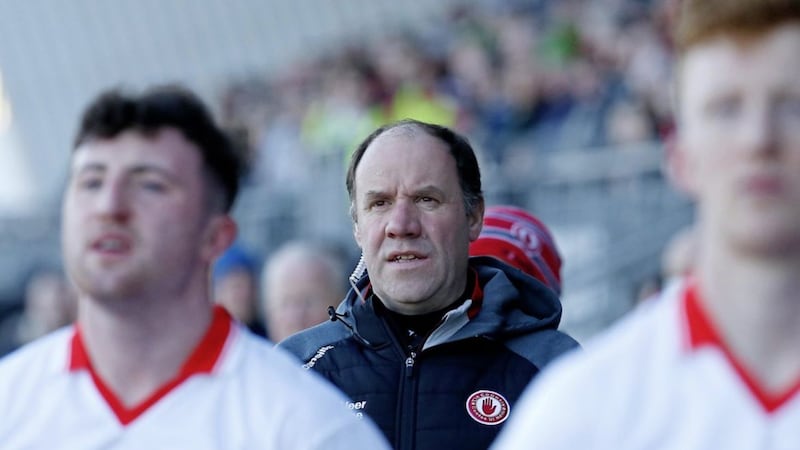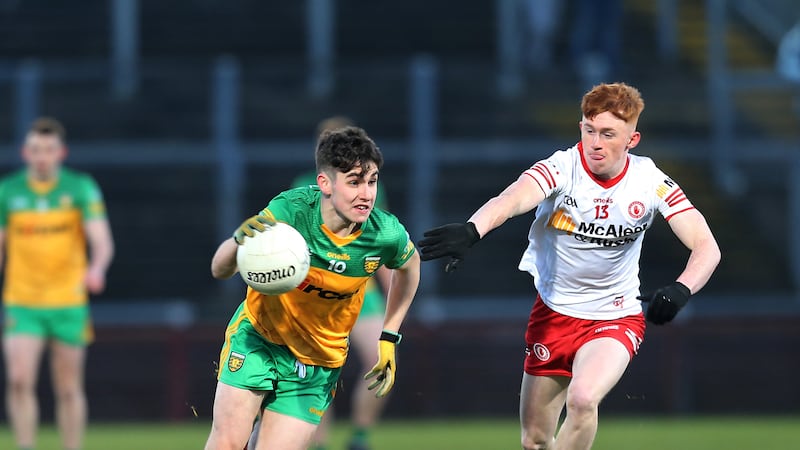Blow-in: A person who has relocated to an area who has no roots there.
ONE evening you bite the bullet and arrive at what is now your ‘local’ club.
Did you play there? No.
Did your father play there? No.
Do you know anyone there? Not really.
Does everyone else seem to know each other? Yes.
Do you want to get involved? Of course.
Chances are you’ll soon discover you’re not the first new face to show up.
I heard a conversation recently at a club that went something along these lines:
“You’re only a blow-in,” says the first guy.
“Sure you’re only a blow-in,” retorted his intended target, with a laugh: “And here, that’s all you’ll ever be.”
Some wag listening in, another blow-in at the club apparently, diffused the situation by shouting across: “All refugees are welcome!” And so everyone went on about their business.
Life isn’t always easy for a GAA blow-in. Sometimes they get warmly welcomed to their new club, particularly by rural outfits who have traditionally been short on numbers and on the field and have had the same people doing the same jobs on committees for years and years.
But the new faces can quickly discover that the initial goodwill they’ve been shown gives way to resistance if they are considered to be getting too big for their boots.
News reached me a while ago about a situation at a club at which the natives had been mobilised to, as they saw it, wrestle control back from a group of well-meaning new faces who, to their credit, had worked hard to breathe new life into it and had played a huge role in saving it from going out of business.
I’m not saying that the natives turned up armed with pitchforks and blazing torches to chase the newbies out, but there was certainly a move made to restore the status quo.
The ‘blow-ins’ had made a massive contribution to the club but because their great-grandfathers hadn’t helped to chase the cattle off the field before the first match in 1906 and because maybe they hadn’t played in the famous parish derbies of yesteryear, they were considered to be taking liberties.
In fairness, it often isn’t easy for the natives either in these situations. Most rural clubs are tight-knit communities where everyone has known each other for generations and family bonds go way, way back.
That began to change around 20 years ago when new housing developments brought in an influx of new faces. Many people swapped town or city life for the country or came from overseas and brought their children down to training and naturally wanted to get to know their neighbours and become part of the club be it through coaching or on committees. Some had come from successful, higher-profile clubs and could identify areas for potential and development in their adopted homes.
In many ways, blow-ins are damned if they do and damned if they don’t. If someone relocates to live in a rural community but doesn’t get involved in their local club, the natives will mutter that he or she “never sets foot through the gate”.
On the flip side, if they do become involved and use their organisational or coaching talents to improve the club and treat it as their own they could get stick for “coming in here, trying to tell us how to run the place”. And it’s often natives, who have taken little or nothing to do with the club, who are the most vocal opponents.
Take a step back and you can see that small clubs are crying out for new blood but change can be hard to accept for some local people who have become used to the way things had always been done.
It can prove problematic. Bob Marley sang: “Don't let them change ya, or even rearrange ya” and a break from a norm can be hard to accept but we have to adapt, don’t we? The bottom line is that for a club to thrive, the gates have to be open to one and all.
So you might be a blow-in but that shouldn’t prevent you from getting stuck-in wherever you can and even the most resistant of the old-guard will respect that and, if they really have the best interests of their club at heart, encourage it.
You might not have been part of your club’s past but you can play a part in its future.
///////////////////////////////////////////////////////////////////////////////////////////////////////////////////////////////////////
IN 1993 a young fella called Rory Best played his first game at Ravenhill in a cross-community team made up by lads from two neighbouring primary schools.
The team won the tournament at the home of Ulster rugby but Rory was not the star of the show, that accolade went to a young flying machine, a ‘wrecking ball’ by the name of Gareth McDowell who trampled over anyone brave/stupid enough to get in his way on the way to try after try.
Gareth went on to become a mechanic while Rory went on to become one of Ireland’s greatest players ever. He might not have caught the attention of the spectators back in 1993, but even then everyone could see that he was the cement that held the team together.
A born leader, Best captained Ulster, Ireland and the British and Irish Lions. He won 124 caps in the green jersey and was a four-time Six Nations Championship winner who skippered Ireland to the Grand Slam and Triple Crown as well as unforgettable victories over New Zealand, South Africa and Australia.
Tomorrow Rory, Gareth and their mates from the 1993 team (many of whom haven’t played rugby since) will take the field again to play against a side which has been put together by Rory’s elder brother Simon, the former second row who also captained Ireland.
It’s all part of ‘Poyntzpass celebrates Rory Best’ and the event will be hosted by Redmond O’Hanlon’s GAC in the village.
As well as the rugby, there’ll be Gaelic Games, music and of course a few words from the man himself. It’s from 2.30pm to 5pm and admission is free.








